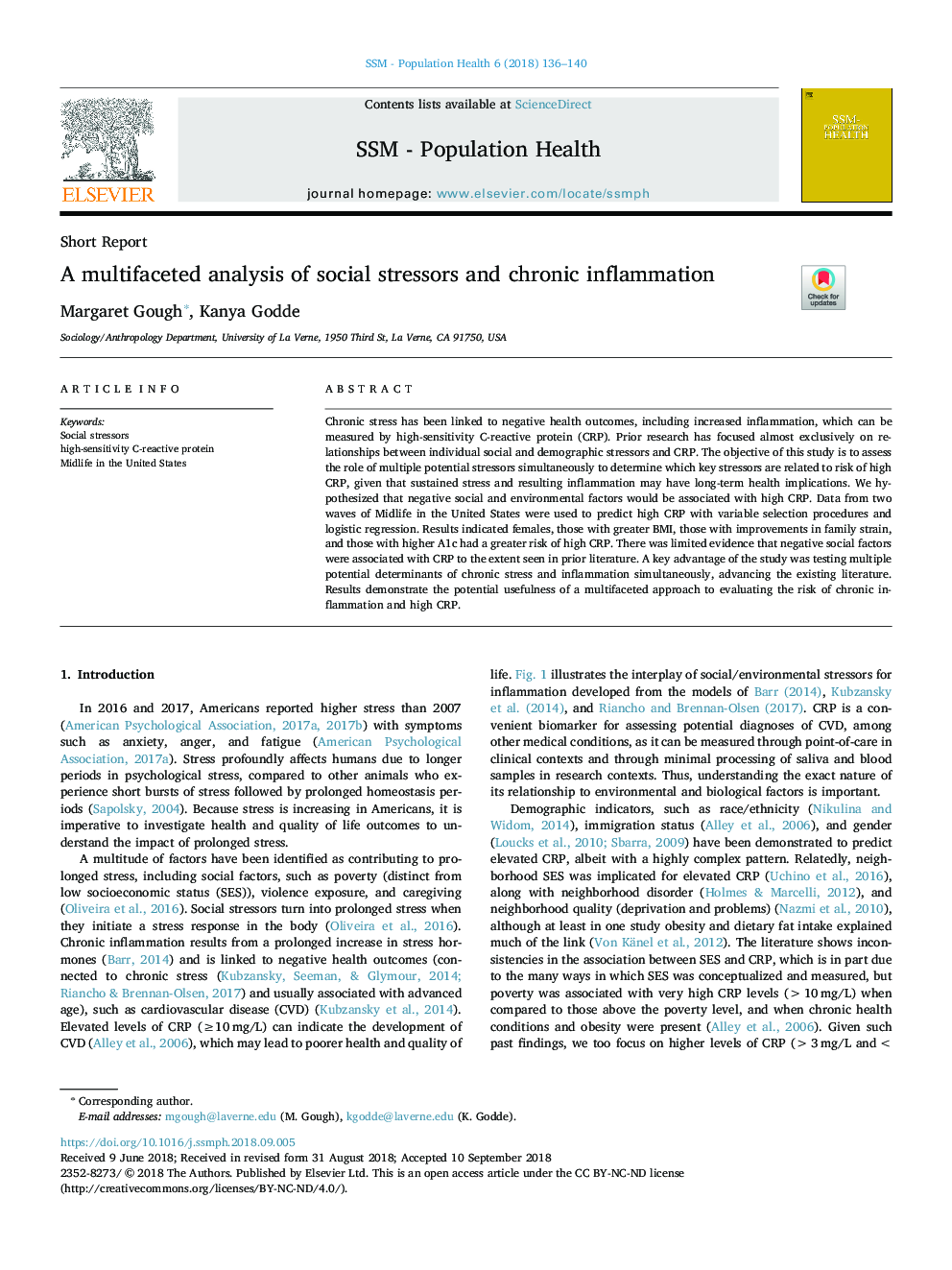| Article ID | Journal | Published Year | Pages | File Type |
|---|---|---|---|---|
| 11005550 | SSM - Population Health | 2018 | 5 Pages |
Abstract
Chronic stress has been linked to negative health outcomes, including increased inflammation, which can be measured by high-sensitivity C-reactive protein (CRP). Prior research has focused almost exclusively on relationships between individual social and demographic stressors and CRP. The objective of this study is to assess the role of multiple potential stressors simultaneously to determine which key stressors are related to risk of high CRP, given that sustained stress and resulting inflammation may have long-term health implications. We hypothesized that negative social and environmental factors would be associated with high CRP. Data from two waves of Midlife in the United States were used to predict high CRP with variable selection procedures and logistic regression. Results indicated females, those with greater BMI, those with improvements in family strain, and those with higher A1c had a greater risk of high CRP. There was limited evidence that negative social factors were associated with CRP to the extent seen in prior literature. A key advantage of the study was testing multiple potential determinants of chronic stress and inflammation simultaneously, advancing the existing literature. Results demonstrate the potential usefulness of a multifaceted approach to evaluating the risk of chronic inflammation and high CRP.
Related Topics
Social Sciences and Humanities
Social Sciences
Health
Authors
Margaret Gough, Kanya Godde,
